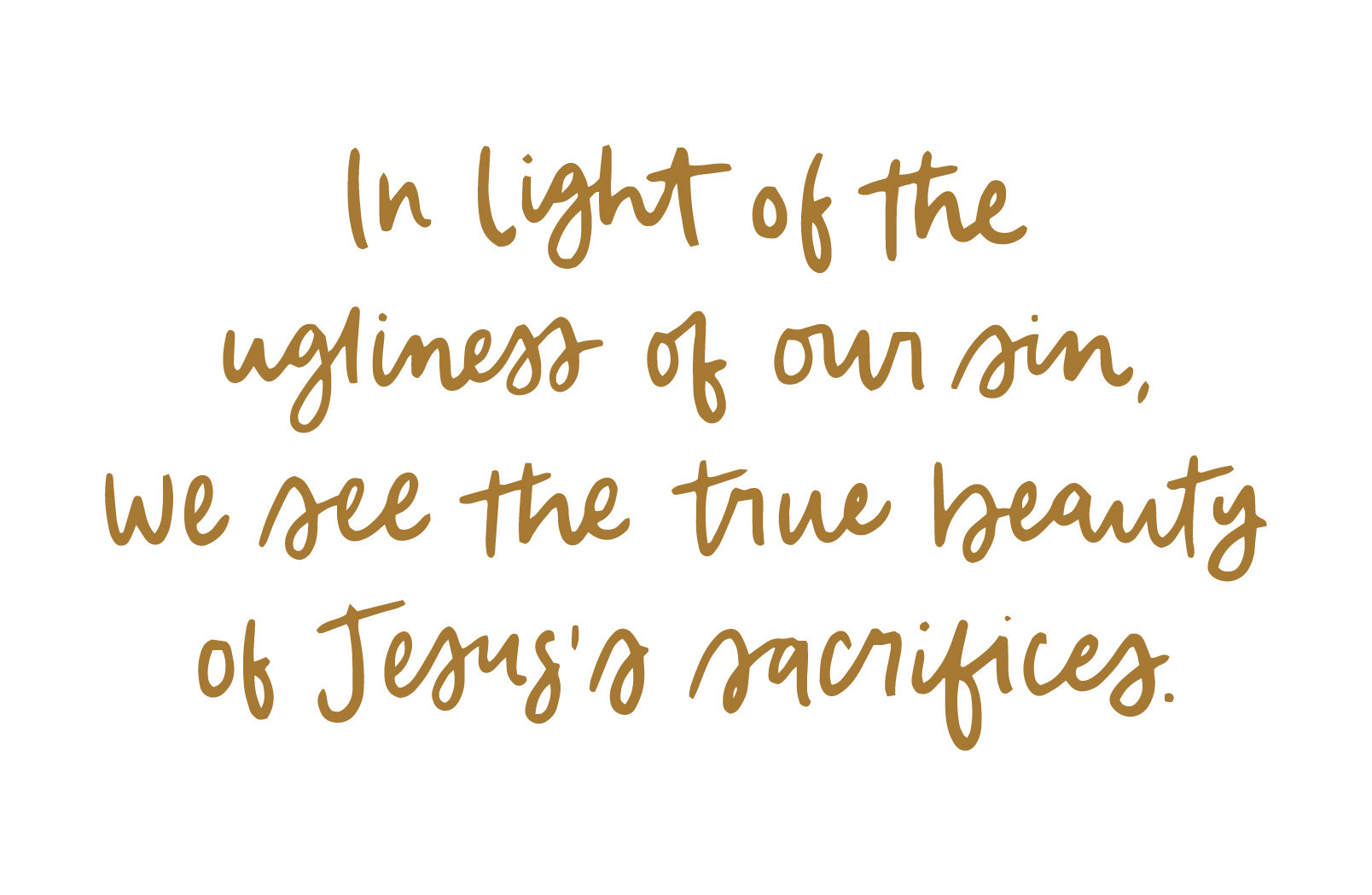When was the last time that you sat and marveled at God’s holiness? If you’re like me, it has been too long. God’s holiness is one of His defining characteristics. In fact, the Bible uses the word “holy” over 600 times. God is undefiled. He is unstained. He is pristine and pure.
We may sit and marvel at His kindness, His faithfulness, or His provision, but God’s holiness is more difficult to wrap our heads around. Why? Because admiring God’s holiness immediately requires us to see ourselves in light of His purity. Our most holy deeds are like filthy rags before Him. Our best attempts at righteousness are like a drop in the ocean of His glory.
How God’s Holiness Makes Us Aware of Our Sinfullness
In Isaiah 6, the prophet Isaiah experiences a vision from God. This vision takes Isaiah into the throneroom of God. Angels proclaim “Holy, Holy, Holy” in worship of God’s splendor. Immediately, Isaiah falls to his face in shame: “Woe is me for I am ruined because I am a man of unclean lips and live among a people of unclean lips, and because my eyes have seen the King, the Lord of Armies.” In God’s glory, he was struck with awareness of his sin. Isaiah felt unworthiness and even fear in God’s presence. Would the presence of God kill him? Would God’s glory blind him? We will come back to these questions shortly.
God’s holiness is magnified across all of Scripture. We can especially observe God’s holiness in the tabernacle. The tabernacle is the structure God provides to house His presence among the Israelites. However, the Bible outlines specific rules for who can enter God’s presence and how they should go about it. Only men from a designated bloodline, the Levites, could be priests and attend to the tabernacle.
Priests would regularly sacrifice offerings to pay for their sin on behalf and the sin of Israel. Before entering God’s presence, they must be thoroughly cleaned, wear the priestly garments, and follow specific rituals (Leviticus 8–10). At first glance, these rules may seem petty and complicated, but each and every step of the purification process pointed to the holiness of God. See, even though the Israelites rebelled against Him, God made a way to draw near. This tedious process was not a burden, but a blessing.
How God’s Holiness Affects Us Today
Even today, the sacrifices we make to follow God are not burdens, they are blessings. If we find ourselves complaining about God’s commands to stay sexually pure before marriage or to not engage in gossip or to avoid getting drunk with wine, God is not the problem. Our understanding of God is the problem.

In light of God’s holiness, the ability to follow Him, to pray, to read His word, and commune with other believers is a miracle! A holy God sent His Holy Son to experience the dirt, decay, and disgust of the earth. Jesus felt the repercussions of sin. He was mocked, beaten, and belittled. He likely felt sunburn and bee stings. He was bruised and pierced and unjustly nailed to a cross. Our holy God became the sacrificial lamb who died to cover our sins. His purity paid the price of our filth. If we neglect to worship God’s holiness, we cheapen the gospel. In light of the ugliness of our sin, we see the true beauty—the true brilliance—of Jesus’s sacrifice.


God’s Holiness and Grace
Let’s return to Isaiah’s vision in Isaiah 6. After he falls in humility before God, something fascinating happens. God does not ban Isaiah from His presence. He does not swallow Him up in fire. Instead, the radiance of God’s holiness heals Isaiah. God makes a way. Isaiah 6:6 says,
Then one of the seraphim flew to me, and in his hand was a glowing coal that he had taken from the altar with tongs. He touched my mouth with it and said: Now that this has touched your lips, your iniquity is removed, and your sin is atoned for.
Before God’s throne, Isaiah now rests clean and undefiled—beautifully foreshadowing Israel’s coming Savior, Jesus. It is no wonder that the prophet Isaiah records more prophecies of the coming Messiah than any other prophet—he experiences God’s grace himself.
Just as God does not leave Isaiah unclean, we too are made holy throughout our lives. God’s plan was not to commune with man in a tabernacle or even in visions forever. By grace through faith in Jesus, God’s Holy Spirit lives inside our very hearts, transforming our hearts’ ugliness to beauty.
We do not have to sacrifice to be in God’s presence. We do not have to fear for our lives in prayer. We do not have to have flaming coal touch our lips to come before God’s throne. We can pray and be heard. We can bring the mess of our lives to God, as a child would approach her Father. Jesus Christ paid the price, so that we may draw near. And our response is to be holy as He is holy (1 Peter 1:16).
Let us not shy away from praising God for His holiness. As light exposes what darkness hides, let His holiness unveil our sin so that we too may become holy. Let us be so enamored with His glory that we respond just like Isaiah does—”Here I am. Send Me.” (Isaiah 6:8).
Additional Resources to Help You Understand God’s Holiness:
https://thedailygraceco.com/products/the-attributes-of-god-study
https://thedailygraceco.com/products/attributes-of-god
https://thedailygraceco.com/products/attributes-of-god-kids
https://thedailygraceco.com/blogs/a-year-in-the-bible/isaiah-4-6-holy-holy-holy










